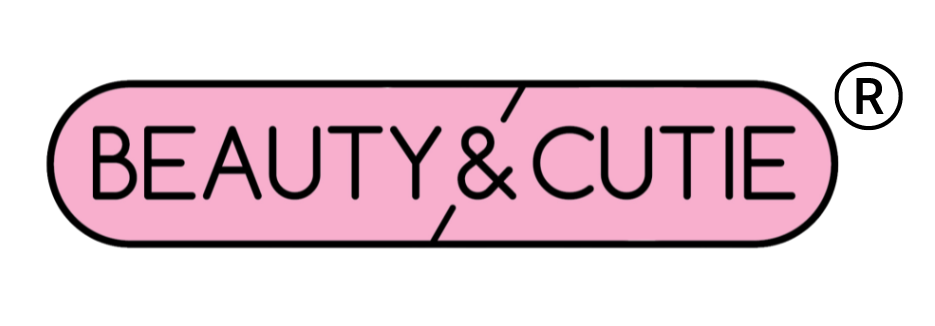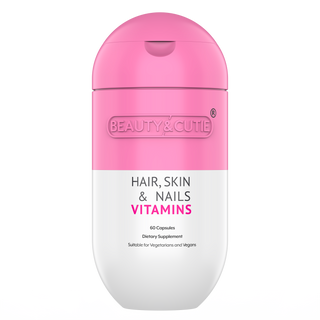As we age, our body's ability to produce collagen decreases, leading to wrinkles, sagging skin, and other signs of aging. Collagen is not only essential for our skin's elasticity and strength but also for the health of our vital organs. With the rise of collagen creams and supplements, many wonders which option is better. In this blog post, we will explore the benefits and drawbacks of each method and provide you with the information you need to make an informed decision. Whether you're in your 30s or beyond, this post will help you understand the science behind collagen and how you can best incorporate it into your anti-aging routine.
What Are Collagen Creams?
Collagen creams are a popular anti-aging product that claims to reduce wrinkles, sagging skin, and other signs of aging. Collagen is an essential protein in our body that provides our skin with elasticity and strength, as well as supporting the health of our vital organs. However, as we age, our body's ability to produce collagen decreases, leading to the need for collagen supplements.
While collagen creams may act effectively as a moisturizer, they have difficulty penetrating the outer layer of skin to reach the dermis layer where collagen is most abundant. Peptide-based creams may have more success at penetration.
On the other hand, oral collagen supplements, such as those found in bone broth, can be digested and broken down into smaller fragments that can be distributed via the bloodstream throughout the body. To support collagen synthesis, it is recommended to add vitamin C and lysine to your beauty regimen.
Overall, it is best to use collagen supplements to provide the building blocks for collagen synthesis from the inside of your body and add other components to your beauty regimen to support collagen synthesis.
Does Collagen Cream Have Any Noticeable Effects?
Collagen cream can have some noticeable effects on the skin, but these effects may be limited. Collagen is a large molecule that is difficult for the skin to absorb, so topical collagen may not be the most effective way to boost collagen levels in the skin. However, some collagen creams may contain smaller peptides that are more easily absorbed by the skin.
These peptides can help to hydrate and plump the skin, giving it a more youthful appearance. Additionally, some collagen creams may contain other active ingredients, like vitamin C, that can help to boost collagen synthesis in the skin. Overall, while collagen cream may not be as effective as other forms of collagen supplementation, it can still be a useful addition to a skincare routine for its hydrating and plumping effects.
What Ingredients Are Found In Collagen Creams?
Collagen creams typically contain collagen protein as their main ingredient, which is intended to help improve the appearance of fine lines and wrinkles in the skin. Other ingredients often included in collagen creams may include hyaluronic acid, which helps to hydrate and plump the skin, as well as antioxidants like vitamin C and vitamin E, which can help to protect the skin from environmental damage.
Some collagen creams may also contain peptides, which are smaller protein fragments that may be more easily absorbed by the skin, as well as other moisturizing agents like glycerin and shea butter.
However, it's important to note that collagen creams may not be the most effective way to boost collagen levels in the skin, as the collagen molecule is too large to penetrate deeply into the skin on its own. Instead, collagen supplements or foods rich in collagen may be a better option for promoting collagen synthesis from within the body.
Are Collagen Creams Beneficial For Skin Health?
Collagen is an important protein for our body, especially for our skin. As we age, our body's ability to produce collagen decreases, leading to wrinkles and fine lines. Collagen creams claim to help restore collagen to the skin, but their effectiveness may be limited.
Collagen is a large molecule that has difficulty penetrating the skin's outer layer, making it difficult for topical collagen to reach the dermis layer where it can be most beneficial. However, collagen creams containing peptides may have more success at penetrating the skin.
Additionally, using a collagen cream as a moisturizer can help improve skin hydration. Overall, while collagen creams may provide some benefits for skin health, it is more effective to supplement collagen intake through oral supplements or natural sources such as bone broth. Adding other components like vitamin C, lysine, and hyaluronic acid to your beauty regimen can also support collagen synthesis and improve skin health.
What Kind Of Results Can Be Expected From Using Collagen Creams?
Using collagen creams can provide some benefits to the skin, such as improved hydration and a temporary plumping effect. However, collagen molecules are too large to penetrate the skin's surface and reach the dermis, where collagen production occurs naturally. Therefore, using collagen creams alone may not have a significant impact on collagen synthesis.
For more significant results, oral collagen supplements or other collagen-boosting ingredients, such as vitamin C and lysine, may be more effective in supporting collagen production from within the body. Complementing topical collagen treatments with these supplements may provide more noticeable improvements in skin texture, tone, and overall appearance.
Does Collagen Creams Help Reduce Wrinkles?
Collagen is an important protein in our body, especially when it comes to our skin's appearance. As we age, our body's ability to produce collagen decreases, leading to wrinkles and other signs of aging. Collagen creams are marketed as a way to reduce wrinkles and improve skin elasticity.
However, when it comes to collagen creams, the problem of dimensionality arises. Collagen is a large molecule that has difficulty penetrating the skin's outer layer, the epidermis. While collagen creams may act as effective moisturizers, they may not provide the desired results when it comes to reducing wrinkles.
A better option for boosting collagen production and reducing wrinkles is to use oral supplements. Supplements containing collagen, either synthetic or natural such as bone broth, can provide the building blocks for collagen synthesis from the inside of your body. These supplements can be distributed via the bloodstream, including to the dermis skin layer where they can boost collagen synthesis.
In addition to oral supplements, adding vitamin C and lysine to your beauty regimen can also support collagen synthesis. Hyaluronic acid can also boost skin moisturization.
What is Marine Collagen?
Marine collagen is a type of collagen protein derived from fish and other marine sources. It is known for its ability to improve skin elasticity and reduce the appearance of wrinkles.
While topical collagen creams may act as effective moisturizers, oral collagen supplements containing marine collagen can provide the building blocks for collagen synthesis from within the body, leading to more noticeable improvements in skin texture, tone, and overall appearance.
Complementing marine collagen supplements with other collagen-boosting ingredients, such as vitamin C and lysine, can further support collagen production and provide anti-aging benefits.
Are There Any Long-Term Benefits To Using Collagen Creams?
While collagen creams can provide short-term benefits such as improved skin hydration and elasticity, there is limited evidence to suggest that they offer any long-term benefits. This is because collagen molecules are too large to penetrate the skin's outer layer and reach the deeper layers where they can have a more significant impact on collagen synthesis.
In contrast, oral collagen supplements can be broken down into smaller fragments that are distributed throughout the body, including the skin, to support collagen production from within. A
dditionally, incorporating other components such as vitamin C and lysine into your beauty regimen can further support collagen synthesis. Therefore, while collagen creams can provide temporary benefits, it is advisable to also consider other options such as oral supplements for optimal long-term benefits.
Are Collagen Creams a Good Value For The Money?
Collagen creams have become increasingly popular in the beauty industry, promising to improve skin elasticity and reduce the appearance of wrinkles. However, when it comes to the question of whether they are a good value for money, the answer is not straightforward.
First of all, it's important to understand that collagen molecules are too large to effectively penetrate the skin when applied topically. This means that using collagen creams alone may not provide the desired results. However, some collagen creams contain smaller collagen fragments called peptides, which can potentially be more effective in reaching the deeper layers of the skin.
Even with the use of peptides, the effectiveness of collagen creams is still up for debate. Some studies have shown that they can improve skin hydration and elasticity, while others have found no significant differences compared to a placebo.
Moreover, collagen creams can be quite expensive, with some high-end brands charging hundreds of dollars for a single jar. This can make them a less attractive option for those on a tight budget.
Conclusion
In conclusion, when it comes to the debate between collagen creams versus supplements, the answer depends on your goals and your budget. While collagen creams can provide temporary benefits to the skin, their effectiveness and value for money may vary depending on the brand and formulation.
On the other hand, oral collagen supplements can support collagen production from within by providing the necessary building blocks for collagen synthesis throughout the body, including the skin. Additionally, incorporating other components such as vitamin C and lysine into your beauty regimen can further support collagen synthesis.
Ultimately, for optimal long-term benefits, it is advisable to consider a combination of both topical and oral collagen supplementation, along with a healthy diet rich in collagen-boosting foods and other essential nutrients.
In addition, consider discussing a breakdown of your skin's health needs with a medical professional, such as a dermatologist or a doctor. By taking a comprehensive approach, you can support your body's natural collagen production and maintain healthy, youthful-looking skin for years to come.
Final Thoughts
Looking good and feeling good go hand in hand, and Beauty and Cutie understand that better than anyone. We've created a supplement that ensures your hair, skin, and nails receive all the essential nutrients they need to thrive. With our special formula, cell production is optimized, leading to healthier hair, skin, and nails. Experience a truly beautiful you with Beauty and Cutie!
Sources
- https://www.medicalnewstoday.com/articles/when-to-start-using-anti-aging-products
- https://www.healthline.com/health/vitamin-e-for-skin
- https://www.ncbi.nlm.nih.gov/pmc/articles/PMC8824545
- https://vibrancemedspa.com/what-happens-to-collagen-as-we-age
- https://www.webmd.com/beauty/marine-collagen
*These statements have not been evaluated by the Food and Drug Administration. This product is not intended to diagnose, treat, cure or prevent any diseases.


